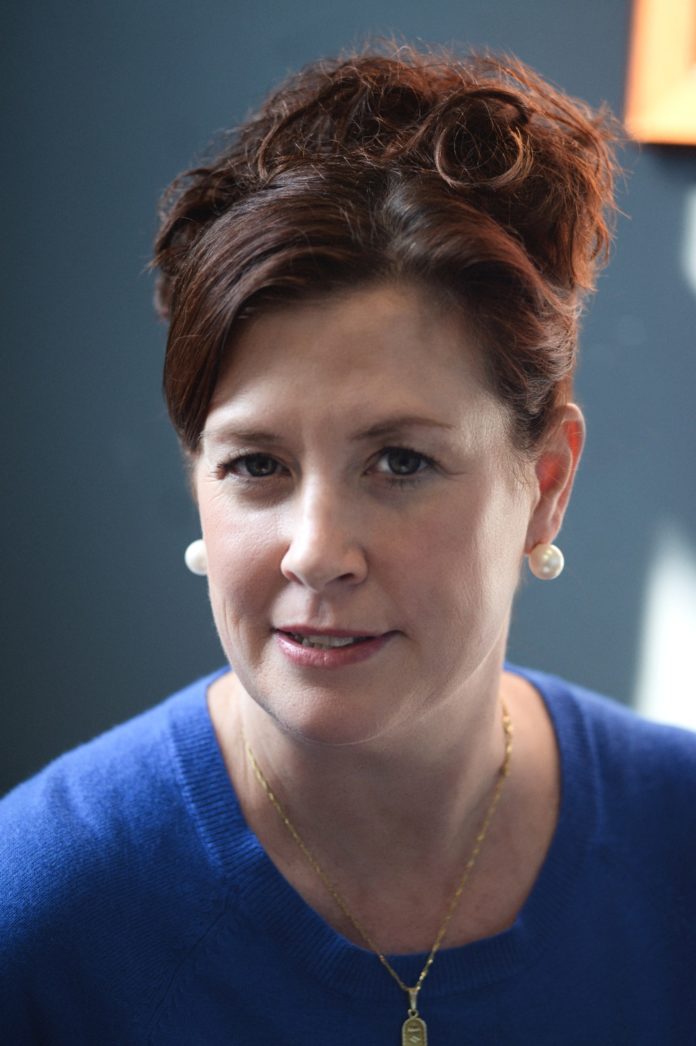
Nicole Dufresne joined the Boys & Girls Clubs of Providence in 2004 as director of programs before advancing to chief operating officer in 2006, and being named CEO in 2009. She credits her professional success to the training and development she received when she began her career with the Boys & Girls Clubs at the age of 17. In her role, Dufresne oversees the organization’s seven sites in Providence, where more than 3,000 youth are provided with programs and services designed to help young people succeed in the classroom and prepare for the workforce.
PBN: Last summer, in partnership with the Health Equity Institute at the R.I. Department of Health, the Providence Public School Department and Brown University’s School of Public Health, the Boys & Girls Clubs of Providence launched the Princes to Kings mentorship initiative for male minority students in Providence – what was the impetus behind its creation?
DUFRESNE: As an organization, we’re working on a number of initiatives that address the inequities our youth face and were thrilled when RIDOH’s office of minority health approached us to join. That said, the impetus behind creating Princes to Kings was quite simple: Every partner involved wants to level the playing field for youth and families who lack access to some of the things others may take for granted, such as recreational space, and the social, academic and cultural opportunities needed to meet developmental benchmarks and succeed in the classroom. We also wanted to provide more opportunities for young men to build meaningful relationships with caring, professional role models.
PBN: What is the structure of Princes to Kings and what does it provide its participants?
DUFRESNE: Princes to Kings is a multifaceted program that combines academics and tutoring, athletics, mentoring, cultural enrichment activities and workforce development for participants throughout the year. And, the program is location-based depending on the timing of each seasonal session. In the summer, the program takes place at Roger Williams University’s Providence campus, which further exposes our young men to higher education. During the academic year, the program is housed in our South Side Clubhouse. Classes are led by community activists, a [Rhode Island School of Design] RISD-trained artist, certified teachers and community-based agencies specializing in STEAM programming. It cannot, however, be overstated how vital parents, guardians and teachers are as partners – we know that no single entity can do this work alone.
PBN: How does Princes to Kings address the link between high school graduation rates and health equity in the community it serves?
DUFRESNE: Low graduation rates are associated with a number of poor health and economic outcomes, including chronic disease, teen pregnancy, poverty and poor mental health. Through Princes to Kings, young men of color who have experienced trauma and violence in their communities have a safe, supportive place to unpack it. At the same time, the environment of Princes to Kings helps them explore what it means to be a young adult in the world today. Participants’ school-based learning is supplemented with hands-on, student-centered STEAM (science, technology, engineering, arts and math) programming designed to build 21st-century skills.
PBN: How does this program and partnership compliment the mission and everyday work of the Boys & Girls Clubs of Providence?
DUFRESNE: While much has changed since the Boys & Girls Clubs of Providence was founded in 1868, one thing has remained constant, and that’s our mission. We exist to inspire and enable all children and youth to reach their full potential in life as productive, responsible and healthy members of our community. Though more than 80 percent of our members live below the poverty line, we believe that if every young person is given an opportunity to play, grow and learn in a safe, nurturing environment, they can accomplish anything in life. Princes to Kings aligns directly with not only our mission, but our belief that the best path to break the cycle of poverty is a good education. Every day in the program, participants are developing the skills, talents and passions that help them break through the barriers that have held others back.
PBN: As Princes to Kings approaches the end of its first full year, how has it measured its progress?
DUFRESNE: We have been extremely pleased with the early results of the program, which, at every level, has demonstrated a positive impact on the young men we’re serving. In the program’s inaugural group last summer, we had not only an average weekly attendance rate greater than 90 percent, but also a 94 percent completion rate – this is a program our young men wanted to attend. Beyond these figures, we’ve also seen a measurable change in participants’ interest and expectation to continue their education beyond high school. Nothing has been more positive than the feedback we’ve received from parents and members. Whether it’s a parent telling me their son is more focused in classes and has improved their grades, or a member saying how much they used to dread school but now want to go because they don’t want to disappoint our staff – I know we’re on the right track.












